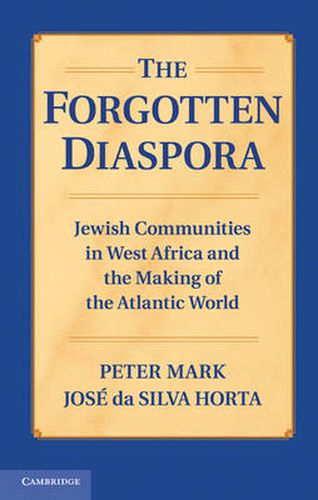Readings Newsletter
Become a Readings Member to make your shopping experience even easier.
Sign in or sign up for free!
You’re not far away from qualifying for FREE standard shipping within Australia
You’ve qualified for FREE standard shipping within Australia
The cart is loading…






This book traces the history of early seventeenth-century Portuguese Sephardic traders who settled in two communities on Senegal’s Petite Cote. There, they lived as public Jews, under the spiritual guidance of a rabbi sent by the newly established Portuguese Jewish community in Amsterdam and were protected from agents of the Inquisition by local Muslim rulers. The Petite Cote communities included several Jews of mixed Portuguese-African heritage as well as African wives, offspring, and servants. The blade weapons trade was an important part of their commercial activities. These merchants participated marginally in the slave trade but fully in the arms trade, illegally supplying West African markets with swords. This arms trade depended on artisans and merchants based in Morocco, Lisbon, and northern Europe and affected warfare in the Sahel and along the Upper Guinea Coast. The study discovers previously unknown Jewish communities and by doing so offers a reinterpretation of the dynamics and processes of identity construction throughout the Atlantic world.
$9.00 standard shipping within Australia
FREE standard shipping within Australia for orders over $100.00
Express & International shipping calculated at checkout
This book traces the history of early seventeenth-century Portuguese Sephardic traders who settled in two communities on Senegal’s Petite Cote. There, they lived as public Jews, under the spiritual guidance of a rabbi sent by the newly established Portuguese Jewish community in Amsterdam and were protected from agents of the Inquisition by local Muslim rulers. The Petite Cote communities included several Jews of mixed Portuguese-African heritage as well as African wives, offspring, and servants. The blade weapons trade was an important part of their commercial activities. These merchants participated marginally in the slave trade but fully in the arms trade, illegally supplying West African markets with swords. This arms trade depended on artisans and merchants based in Morocco, Lisbon, and northern Europe and affected warfare in the Sahel and along the Upper Guinea Coast. The study discovers previously unknown Jewish communities and by doing so offers a reinterpretation of the dynamics and processes of identity construction throughout the Atlantic world.